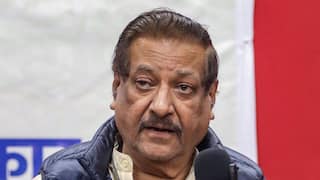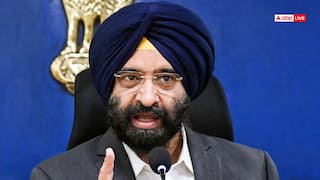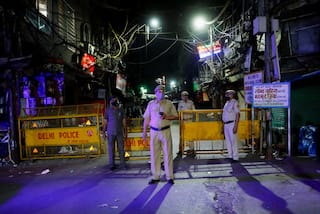Ideas Of India: Amish Tripathi Says India An ‘Ashokan State’, Explains Why It Should Aspire To Be ‘Chanakyan’
Delivering deeper into the binary, Amish Tripathi described the ‘Chanakyan State’ as one that is small but ‘highly effective’.

Author Amish Tripathi on Friday classified India as an ‘Ashokan State’ as opposed to being a ‘Chanakyan State’. Expanding on the difference between the two States, which, he said, represents two forms of governance or administration, the prolific writer said an ‘Ashokan State’ was the first of its kind to promote ‘vegetarianism’ and indulged in matters that could have been left to society or people to decide for themselves as is the norm in free societies.
Addressing a session titled ‘Ayodhya and After: Is Ram Rajya the Ideal State?’ on the opening day of the third edition of ABP Network’s ‘Ideas of India’ summit, the author behind the best-selling ‘Shiva Trilogy’ and numerous other titles said, “The first Indian state to promote vegetarianism was Ashokan state. In the Ashokan system, the state was involved in a variety of activities.”
Delivering deeper into the binary, he described the ‘Chanakyan State’ as one that is small but ‘highly effective’.
In a significant point at a time when leaders across the Opposition spectrum have been accusing the BJP-led NDA at the Centre of misusing probe agencies at their disposal to hound and hassle them in the name of alleged corruption, Tripathi, quoting the ancient Indian philosopher and strategist, said the State controlling graft was like regulating the amount of water that a fish should drink.
“Chanakya said a beautiful line that 'trying to control' corruption in bureaucrats is like trying to control how much water a fish will drink. There's no control,” the author said.
Further, underlining a key aspect of the ‘Ashokan State’, which he claimed took away from the salient responsibilities of an administrator, Tripathi added, “We don't have an Chanakyan State, we have an Ashokan State, which interferes into too many things, which causes distractions, and the system would fail to perform its core duties.”
“I believe that we should follow the Chanakyan state in certain areas such as law and order, infrastructure, and trade regulation; this would avoid moralising. It exhibited vigilantism,” the author said, adding that the ‘Chanakyan State’ even allowed ‘prostitution’ but regulated the practice. “It was not a libertarian state; it would do a few things, enforce its will in a few areas, and leave the rest to society. Why? Because Chanakya believed that if the state interfered in too many things, there would be chaos,” he added.
The author said instead of delving into too many things, an ideal State should enforce its will or writ in a few matters and do it effectively. “In my opinion, the Chanakyan state is better. You do a few things, and enforce it better.”
Watch streaming of Ideas of India on Metaverse






































